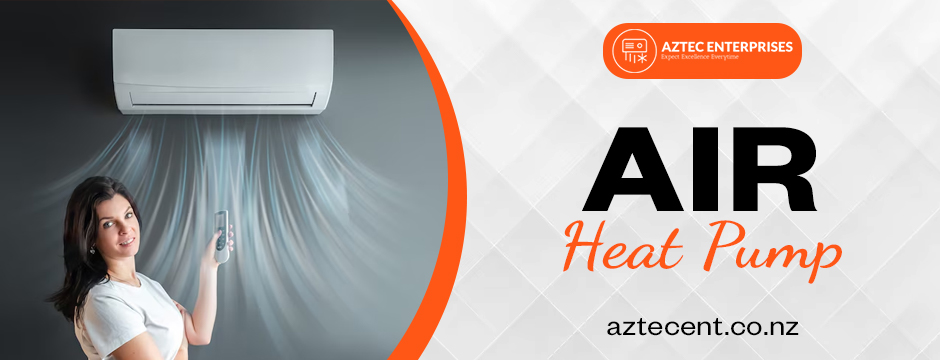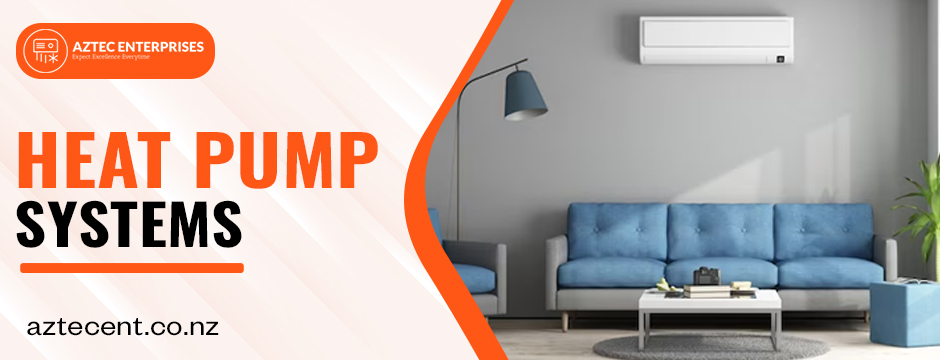In the realm of modern Heat Pump System Air Conditioning technology, the choice between Heat Pump Systems and traditional air conditioning units is a decision that many homeowners and businesses face. Both systems are designed to provide cooling relief during hot summer months, but they operate on different principles and offer unique advantages. In this comprehensive guide, we’ll delve into the differences between heat pump systems and traditional air conditioning units, helping you make an informed decision for your cooling needs.

Understanding Heat Pump Systems
Heat pump systems are versatile Heat Pump System Air Conditioning systems that provide both heating and cooling capabilities. Unlike traditional air conditioners, which only provide cooling, heat pumps can reverse their refrigeration cycle to extract heat from the outdoor air and transfer it indoors for heating purposes. This dual functionality makes Heat Pump Systems highly efficient and cost-effective, especially in moderate climates where heating demands are relatively low.
Key Features of Heat Pump Systems
Air Heat Pump Systems have revolutionized the HVAC industry with their innovative design and versatile functionality. Offering both heating and cooling capabilities, these systems provide numerous benefits that set them apart from traditional heating and cooling systems. In this detailed exploration, we’ll delve into the key features of heat pump systems, highlighting their energy efficiency, year-round comfort, and environmental sustainability.

Energy Efficiency:
One of the most notable features of heat pump systems is their exceptional energy efficiency. Unlike traditional heating systems, which rely on combustion to generate heat, heat pump systems utilize the principles of thermodynamics to transfer heat from one location to another. By extracting heat from the outdoor air (even in cold temperatures) and transferring it indoors for heating, heat pump systems can achieve remarkable energy savings. This process requires significantly less energy compared to generating heat through combustion, resulting in lower utility bills and reduced energy consumption. As energy costs continue to rise and environmental concerns escalate, the energy efficiency of Heat Pump Systems makes them an attractive choice for homeowners and businesses seeking to minimize their carbon footprint and save money on heating and cooling expenses.
Year-Round Comfort:
Another standout feature of Heat Pump Systems is their ability to provide year-round comfort and convenience. Traditional heating and cooling systems typically require separate equipment for heating and cooling, leading to increased complexity, installation costs, and maintenance requirements. In contrast, heat pump systems offer a single, integrated solution that can effectively heat and cool indoor spaces with ease. Whether it’s sweltering summer temperatures or frigid winter chills, heat pump systems ensure consistent comfort and optimal indoor climate control throughout the year. This versatility eliminates the need for separate heating and cooling systems, simplifying Heat Pump System Air Conditioning management and enhancing overall convenience for homeowners and businesses alike.
Environmentally Friendly:
In addition to their energy efficiency and year-round comfort benefits, heat pump systems are also environmentally friendly. By relying on heat transfer rather than combustion, heat pump systems produce fewer greenhouse gas emissions, helping to mitigate climate change and reduce environmental impact. Traditional heating systems, such as furnaces and boilers, emit carbon dioxide (CO2) and other pollutants during combustion, contributing to air pollution and global warming. In contrast, heat pump systems operate with greater efficiency and lower emissions, making them a greener choice for heating and cooling. By choosing a heat pump system, homeowners and businesses can play a role in protecting the environment and preserving natural resources for future generations.
Comparing to Traditional Air Conditioning Units
Traditional air conditioning units, also known as central air conditioning systems or split systems, operate on the principle of refrigeration to cool indoor spaces. They consist of an outdoor condenser unit and an indoor evaporator coil connected by refrigerant lines. During operation, the refrigerant absorbs heat from indoor air and releases it outdoors, resulting in cooler indoor temperatures.
Key Features of Traditional Air Conditioning Units
Traditional air conditioning units have long been a staple in homes and businesses, providing reliable cooling relief during hot summer months. While newer technologies like Heat Pump Systems offer innovative features, traditional air conditioning units continue to hold their own with their cooling efficiency, simplicity, and cost-effectiveness. In this detailed exploration, we’ll delve into the key features of traditional air conditioning units, highlighting their effectiveness, ease of use, and affordability.
Cooling Efficiency:
One of the primary advantages of traditional air conditioning units is their exceptional cooling efficiency. Designed specifically for cooling purposes, these units are highly effective at lowering indoor temperatures and creating a comfortable indoor environment, even in the sweltering heat of summer. With powerful compressors and advanced refrigeration systems, traditional air conditioning units can quickly and efficiently remove heat from indoor spaces, providing relief from oppressive temperatures. This cooling efficiency makes them a popular choice for homes and businesses located in hot climates where air conditioning is essential for maintaining comfort and productivity.
Simplicity:
Another key feature of traditional air conditioning units is their simplicity in design and operation. Unlike more complex Heat Pump System Air Conditioning systems like heat pump systems, traditional air conditioning units have a straightforward setup with fewer components and moving parts. This simplicity makes them easy to install, maintain, and repair, reducing the need for specialized technical knowledge or extensive training. Homeowners and businesses appreciate the ease of use and reliability of traditional air conditioning units, as they require minimal intervention and troubleshooting to keep them running smoothly. With fewer components that can malfunction, traditional air conditioning units offer peace of mind and dependable performance when you need it most.
Cost-Effectiveness:
While newer HVAC technologies may offer advanced features and energy-saving benefits, traditional air conditioning units remain a cost-effective option for cooling indoor spaces. Compared to Heat Pump Systems and other high-efficiency HVAC solutions, traditional air conditioning units are often more affordable to purchase and install, making them an attractive choice for homeowners and businesses on a budget. Additionally, their lower upfront cost can provide significant savings for those looking to invest in cooling solutions without breaking the bank. With proper maintenance and regular servicing, traditional air conditioning units can deliver reliable performance and cooling comfort for years to come, offering excellent value for your investment.

Conclusion
In summary, both Heat Pump Systems and traditional air conditioning units offer effective cooling solutions for homes and businesses. The choice between the two depends on factors such as climate, energy efficiency goals, budget, and personal preference. If you’re looking for a versatile, energy-efficient solution that provides both heating and cooling, a heat pump system may be the ideal choice. However, if you prioritize simplicity, affordability, and cooling efficiency, a traditional air conditioning unit may better suit your needs. Ultimately, consulting with a reputable Heat Pump System Air Conditioning provider like Aztec Enterprises can help you evaluate your options and choose the best system for your cooling requirements. With the right system in place, you can enjoy reliable, efficient cooling comfort for years to come.
